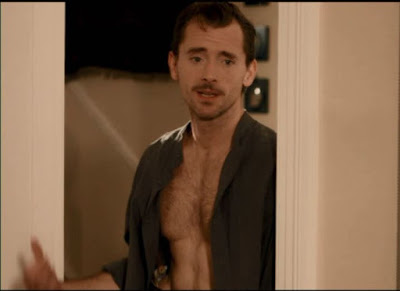In common with many another weirdo, my way into the world of the Other was through the kind of things which were fashionable in my youth. There was a roaring trade (as always) in mediumship, ghosts, you name it. The real key to the weird for me, though, was when I eventually talked my mother into letting me have an 'adult' library card. Precocious brat that I was, there was nothing in the kiddies' library that interested me. As a result in my early teens I read my way – incredibly credulously – through Doris Stokes, various books about anything which could vaguely be described as paranormal, and ultimately discovered Harry Price's books about Borley Rectory. I read them as credulously as I did everything else, since at the time I didn't have the critical apparatus to hand to see through his apparently 'scientific' stance. It is interesting that, to this day, it is difficult to find an appraisal of the Borley events which is not either totally credulous or totally dismissive.
I'm looking forward to the film about Borley starring Reece Shearsmith. Mr Shearsmith can do no wrong in my eyes (apart from being heterosexual, of course), but while I'm waiting for that film I was interested to come across this film recently. I had already read the online reviews which tended to slate the film, but in my INFJ way of storing up information, perusing anything related to my one of my pet subjects, so that I can fit it into my mental spider diagram, is always welcome.
This film focuses solely on two of the characters in the Borley drama – admittedly two of the more colourful ones – Marianne Foyster and one of the random men who are supposed to have passed through her life at one time or another. This film turns her from the chronically bored, unstable, randy, rector's wife, into the neglected wife of a barely-sexed vicar, who is seduced by the randy gardener. This is, of course, to change the bare bones of the Foyster-d'Arles part of the Borley story into a great romance (I would recommend here as a calm account of the facts, minus some of the more hysterical accusations of murder, etc, which Marianne seems to attract). In fact the film would be great if you want a romance. If you're into that sort of thing there's quite a bit of straight sex, and in fact it's worth watching simply for the sight of Lee Bane smoking a pipe in the bath, which unfortunately wouldn't work as a screen capture so I'll choose his Mellors-esque appearance to illustrate this post.
And of course this reframing of the Borley events into a great romance leading to tragedy is this film's downfall. The titles open with one of the classic pictures of the real Rectory, which implies, together with the statement on the box that it is based on true events, that the film will be about the Borley haunting. As an account of the haunting of Borley Rectory this film falls down on all fronts. The trouble is that the Borley story is actually such a rich mine of possible events for film-makers, and yet the makers of this film have both chosen one of the events which is marginal to the main story, and then messed it up by turning it into a scene of horror, with touches of horrific supernatural events. The Borley story is full of things like disembodied voices, wall writings, apports, skulls, nuns, coaches, tunnels, monasteries, bells ringing, doors locking, and so on, that it is a waste of an opportunity to miss them out. The film also ignores another simple fact at the heart of the story: it is about a huuuge house with almost no creature comforts in the middle of an English rural community, which instantly makes the story into one of loneliness and desperation. It is not about the comfortable yet apparently isolated existence lived by the Marianne in this film.
So in summary, this is not actually a film dealing with the Borley story in any great way. If you want a romance which turns into a tragedy, it may be just your thing.

No comments:
Post a Comment
All comments are moderated before publication